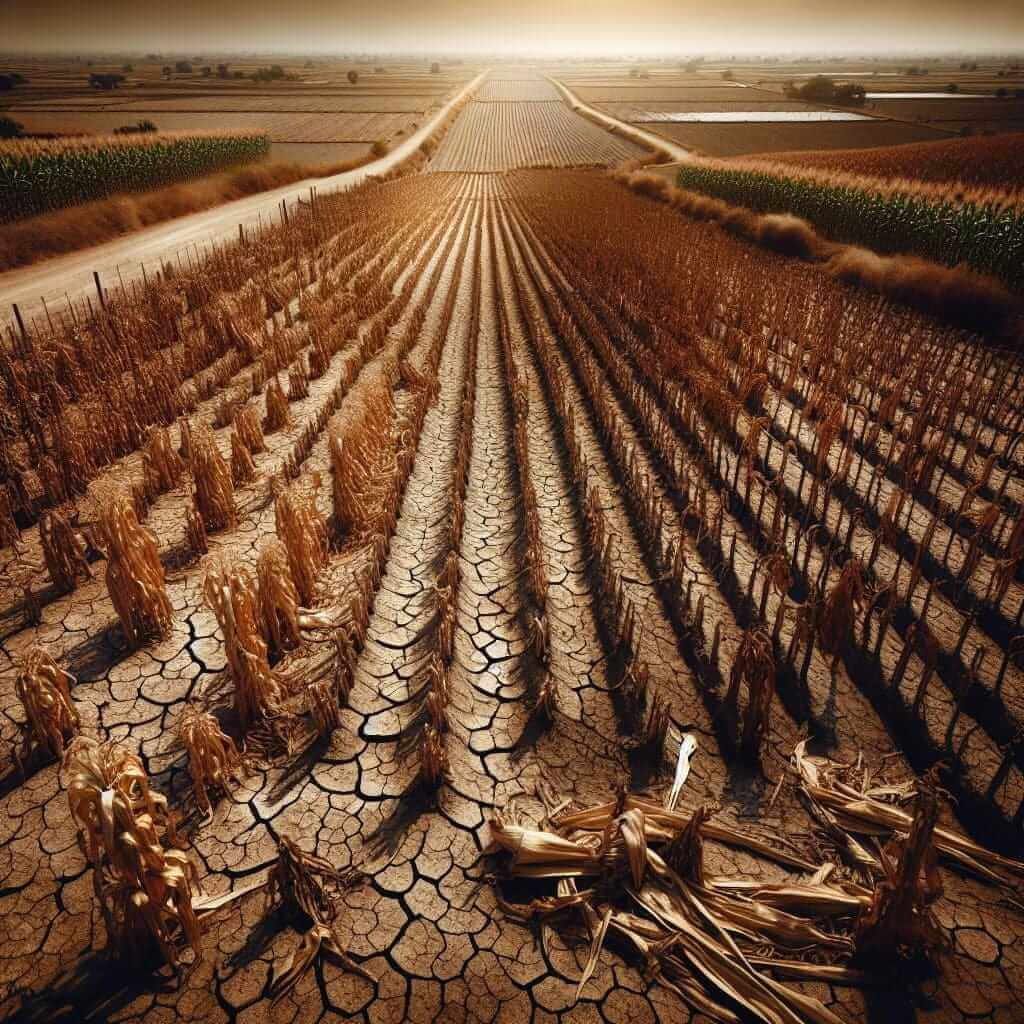Climate change is a pressing issue that has been frequently appearing in IELTS Writing Task 2 exams. It impacts various areas of human life, among which global food security stands out significantly. In this article, we will explore the impact of climate change on global food security, develop relevant IELTS task questions, and provide a sample essay.
Potential IELTS Writing Task 2 Questions
- Some people believe that climate change negatively affects global food security. Discuss the causes and suggest possible solutions.
- Climate change is having a significant effect on food production worldwide. To what extent do you agree or disagree?
- The impact of climate change on global food security is the greatest challenge humanity faces today. Discuss.
Chosen Task and Analysis
Chosen Task
Climate change is having a significant effect on food production worldwide. To what extent do you agree or disagree?
Task Analysis
The question requires candidates to discuss the effects of climate change specifically on food production across the world. Candidates need to outline causes and impacts, and they can express agreement, disagreement, or a balanced viewpoint.
Sample Essay
Introduction
Climate change poses profound threats to various dimensions of human life, and global food security is no exception. This essay will argue that climate change significantly affects global food production through multiple channels including extreme weather events, unpredictable growing seasons, and water scarcity.
Body Paragraph 1: Climate Change and Extreme Weather
Firstly, climate change exacerbates the frequency and intensity of extreme weather events such as droughts, floods, and storms. These events devastate crops, reduce yields, and disrupt food supply chains. For instance, prolonged droughts in regions like Sub-Saharan Africa have led to severe food shortages and widespread famine.
Body Paragraph 2: Unpredictable Growing Seasons
Secondly, the changing climate results in unpredictable growing seasons which complicate agricultural planning. Farmers face challenges in determining planting and harvesting times, leading to inefficient production cycles. Consequently, crops may be planted too early or too late, affecting their maturation and ultimately reducing the amount of food harvested.
Body Paragraph 3: Water Scarcity
Thirdly, climate change influences the availability of water, an essential component in food production. Rising temperatures and altered precipitation patterns lead to water scarcity in agricultural regions, affecting irrigation and leading to reduced crop yields. For example, the depletion of the Amu Darya river in Central Asia has significantly hindered agricultural outputs.
Conclusion
In conclusion, the significant effects of climate change on global food production are undeniable. Extreme weather events, unpredictable growing seasons, and water scarcity collectively threaten food security. As the impact of climate change continues to intensify, collaborative global efforts are essential to mitigate these challenges and safeguard food security for future generations.
Word Count: 256

Key Points to Note While Writing
Vocabulary and Structure
- Extreme weather events: Natural calamities like floods, droughts, and storms.
- Yields: The amount of crop produced.
- Food supply chains: A system of organizations, people, activities, information, and resources involved in supplying food to consumers.
- Precipitation patterns: Patterns related to rain, snow, and other forms of moisture falling from the sky.
- Water scarcity: Lack of sufficient available water resources to meet the demands of water usage.
Grammar
- Complex sentences: Combining multiple thoughts using conjunctions (e.g., and, but, because).
- Passive voice: Useful for formal writing (e.g., “Food security is threatened by…”).
- Cohesive devices: Linking words and phrases to ensure smooth flow (e.g., consequently, for instance).
Vocabulary to Remember
- Exacerbate (verb) [ɪɡˈzæsərbeɪt]: To make worse.
- Devastate (verb) [ˈdɛvəˌsteɪt]: To destroy or ruin extensively.
- Precipitation (noun) [prɪˌsɪpɪˈteɪʃən]: Any form of water – liquid or solid – falling from the sky.
- Irregularity (noun) [ɪˌrɛɡjuˈlærɪti]: Lack of regularity or predictability.
- Famine (noun) [ˈfæmɪn]: Extreme scarcity of food.
- Deplete (verb) [dɪˈplit]: To use up the supply or resources of.
- Collaboration (noun) [kəˌlæbəˈreɪʃən]: The action of working with someone to produce or create something.
- Ameliorate (verb) [əˈmiljəˌreɪt]: To make something bad or unsatisfactory better.
Conclusion
In summary, the topic of climate change and its impact on global food security is a critical subject that could appear in IELTS Writing Task 2. Understanding the multi-faceted impacts of climate change on food production and preparing robust responses will significantly aid candidates. Practice writing essays on this and related topics can sharpen skills and improve performance in the actual exam. For further reading, consider reviewing related articles such as The Impact of Climate Change on Global Food Supply and The Importance of Water Conservation in Combating Climate Change.